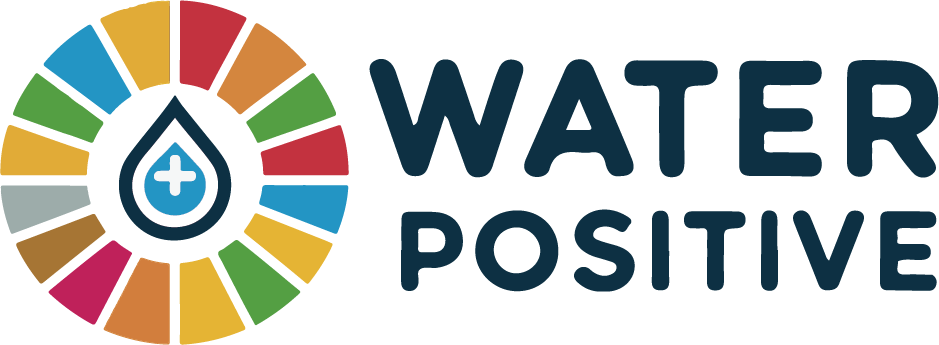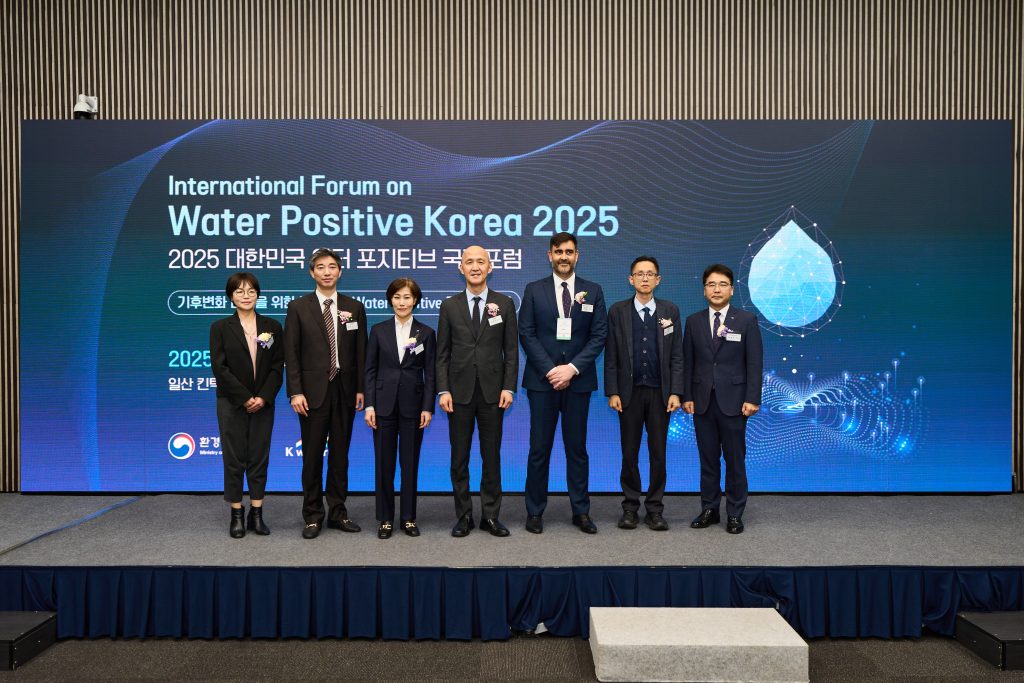On March 21st, 2025, Korea hosted the International Forum Water Positive Korea 2025, under the theme “Strategies and Vision for Water Positive in Korea to Respond to Climate Change.”
The forum brought together key representatives from government, the private sector, and academia. Among the highlights was the participation of our Secretary General of the Water Positive Think Tank, Alejandro Sturniolo, who presented the global vision and mid-to-long-term strategies for advancing Water Positive as a framework for climate action.
Featured Agenda:
- Opening Remarks:
- Director of Water Management Policy – Ministry of Environment (Korea)
- Director of Planning Division – K-water
- Key Presentations:
- “Water Positive Global Vision & Mid-to-Long-Term Strategies”
┃ Alejandro Sturniolo, Secretary General (Water Positive Think Tank) - “Digital-Based Strategies for Global Water Restoration”
┃ William Sarni, CEO (The Future of Water Fund) - “Current Water Positive Initiatives & Goals of Global Corporations”
┃ Namju Koo, Executive Director (Coca-Cola Korea) - “Status of Water Positive Implementation in Korea”
┃ Park Donghak, Head of Environmental Energy Division (K-water)
- “Water Positive Global Vision & Mid-to-Long-Term Strategies”
- Closing Panel:
“Strategies & Vision for Enhancing Water Positive in Korea”
Moderator: Prof. Yongjae Choi (Kyung Hee University)
Panelists:- Hyungseop Lee, Director (Water Use Policy Division, Ministry of Environment)
- Alejandro Sturniolo, Secretary General (Water Positive Think Tank)
- Namju Koo, Executive Director (Coca-Cola Korea)
- Park Donghak, Head of Division (K-water)
- Prof. Kyungjae Lim, (Kangwon National University)
This forum marked a milestone in aligning digital innovation, corporate goals, and public policy to accelerate the adoption of the Water Positive approach as a scalable response to climate change.
Summary of Key Messages Presented
The fact that a country like Korea is taking this bold step marks a historic milestone in the global water agenda. This forum signaled a clear shift: from isolated water management efforts to a coordinated, science-driven, and verifiable strategy aligned with climate action, digital innovation, and regenerative development.
At the forum, the Water Positive Think Tank reinforced its central message:
Water is not just a resource, it’s a strategy.
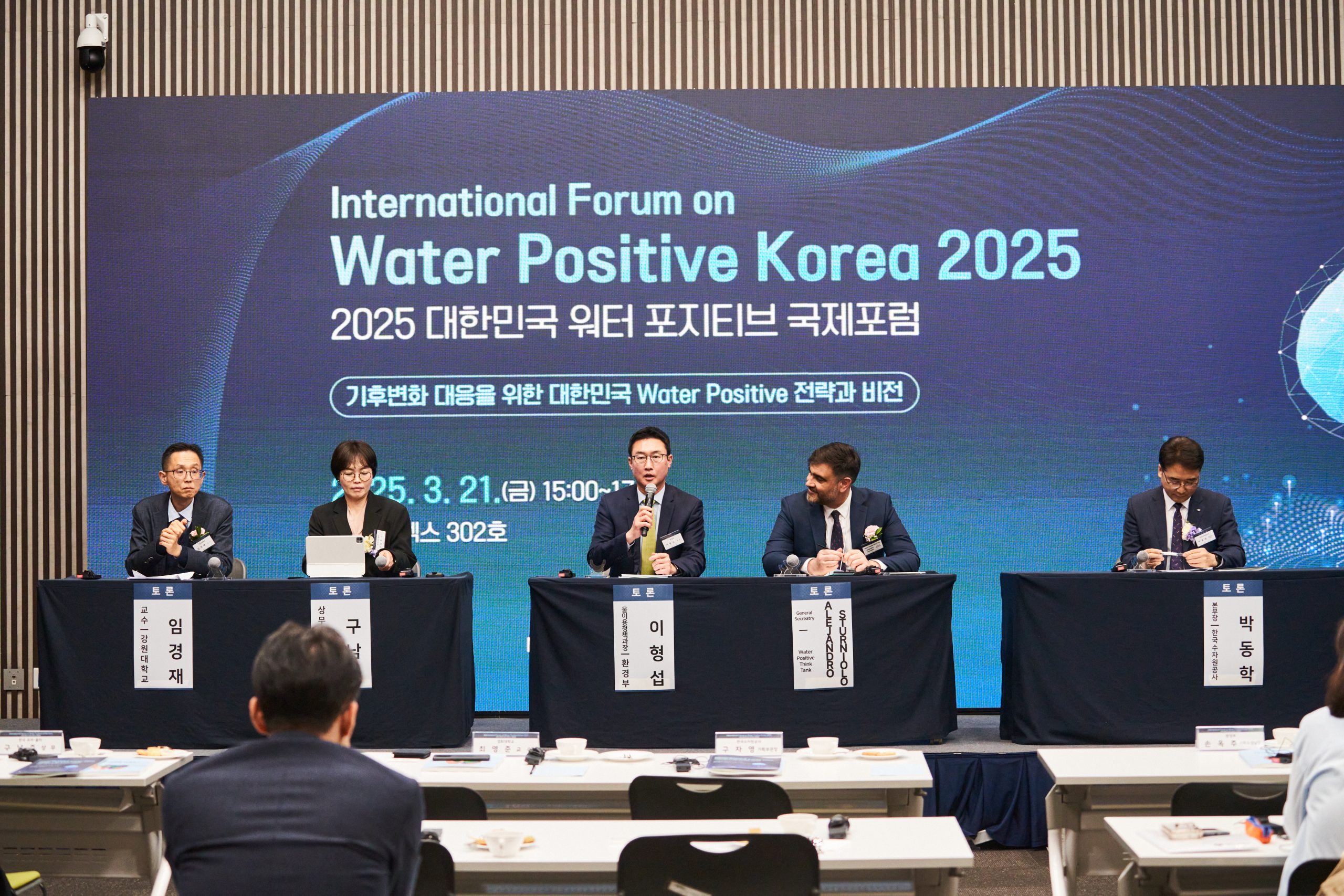
Alejandro Sturniolo highlighted the need to transition from fragmented water management to a unified, science-based and verifiable Water Positive approach.
Key elements discussed included:
- Establishing a robust environmental baseline, using recognized standards like Water Footprint Network and ISO 14046.
- Setting science-based targets to ensure additionality and drive measurable impact.
- Applying Volumetric Water Benefit Accounting (VWBA) and complementary methodologies — including WASH Benefit Accounting, Water Quality Benefit Accounting, and emerging frameworks such as act4water — to quantify, certify, and align water benefits with both corporate strategies and global sustainability goals.
- Leveraging digital twins and AI for real-time performance tracking, baseline simulation, and long-term monitoring.Today, AI is not a competitive advantage in itself, the true differentiator lies in how it’s trained and applied. That’s why human-AI interaction, grounded in experience and purpose-driven design, is essential. In the Water Positive model, AI becomes an intelligent partner, helping convert complex environmental data into actionable impact, but only when guided by a deep understanding of water systems, governance, and sustainability goals.
- Aligning with key governance frameworks like the EU Green Deal, including CSRD and CSDDD, to ensure full value chain accountability.While the recent Omnibus Law has introduced procedural simplifications, it does not exempt companies from responsibility across their entire value chain. On the contrary, it reinforces the need for transparent, risk-based approaches that integrate environmental and social due diligence. In this context, Water Positive projects offer a structured pathway to demonstrate compliance, reduce exposure, and create measurable impact.
Together with William Sarni, who explored the digital transformation for global water restoration, the forum clearly demonstrated that technology, governance, and science must converge to accelerate real water resilience.
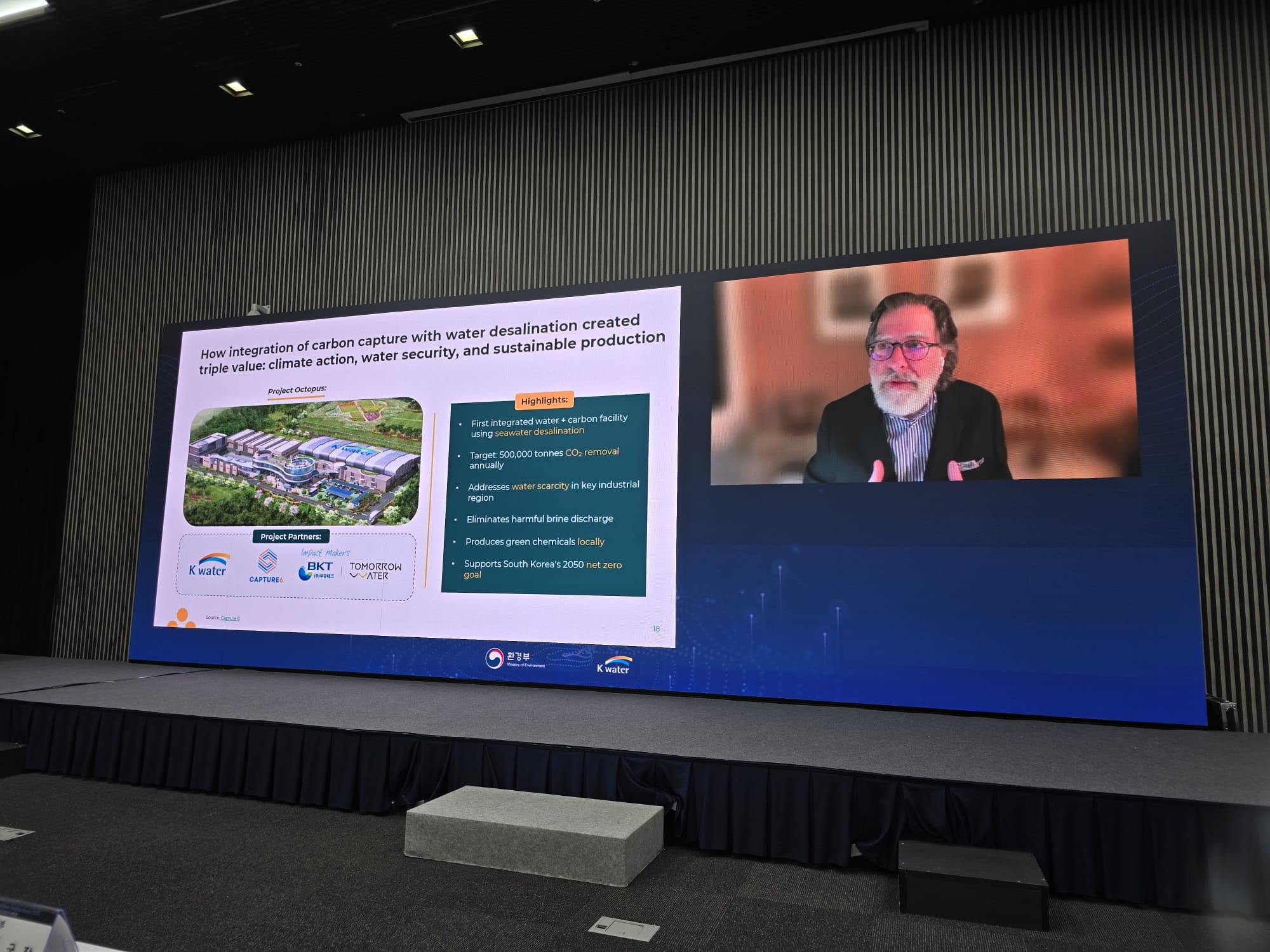
Sarni emphasized the critical role of catalytic communities — cross-sector alliances that drive innovative, scalable solutions to address urgent water challenges. He shared the example of the Colorado River Basin, where companies like Meta, Microsoft, PepsiCo, and platforms like Fido, Water Foundry and Atlantean (as a community partner) are working together to pioneer new models for collaborative water stewardship.
His message challenged conventional thinking by calling for a profound shift in how we relate to water — not as an external resource, but as something deeply interwoven with human identity and dignity. He underscored that wicked problems like water scarcity won’t be solved by conventional leaders, but by the power of unreasonable people willing to act boldly, design differently, and collaborate across silos.
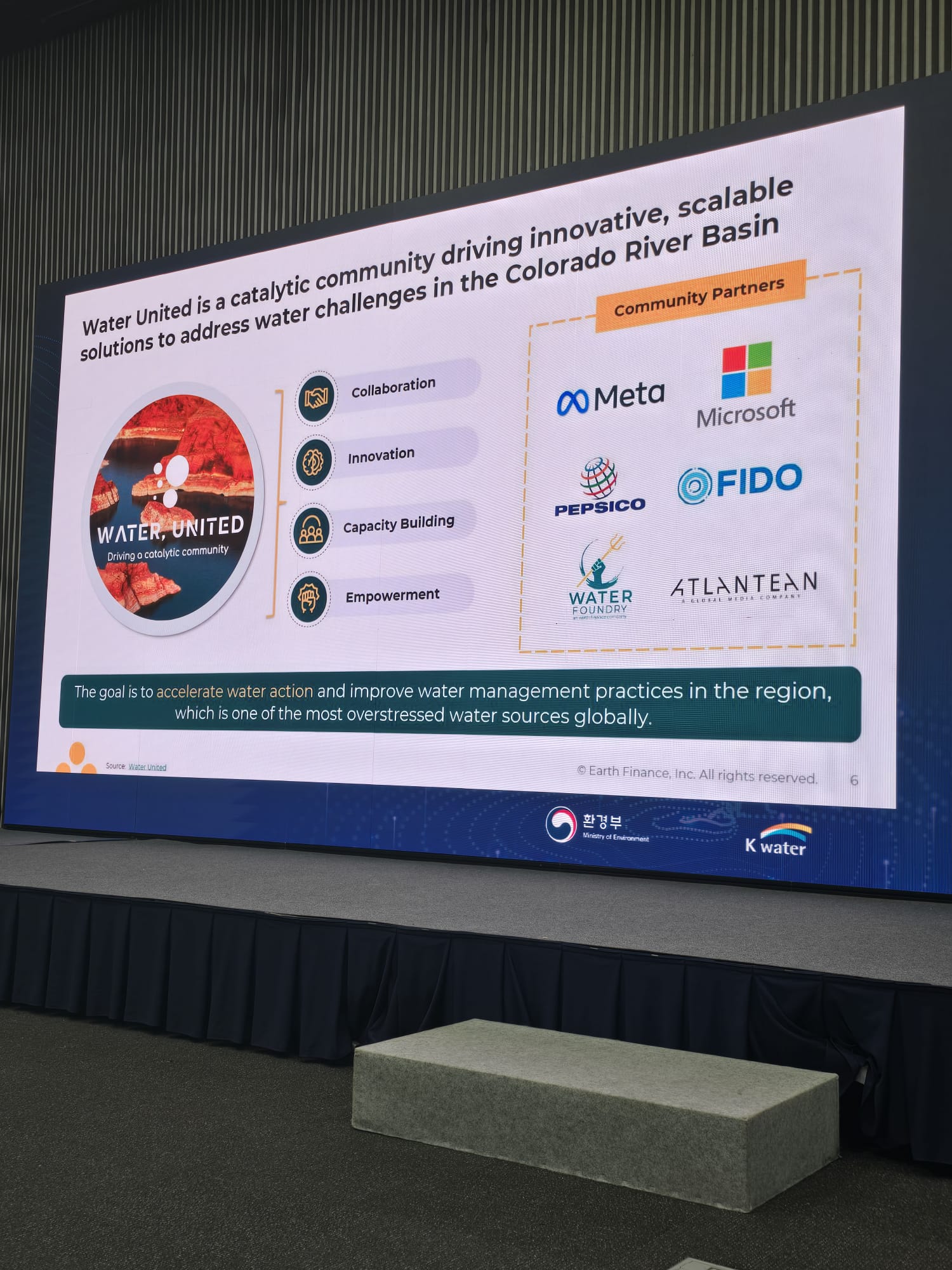
By uniting digital innovation, verified impact, and long-term governance, the Water Positive framework showcased at the forum is not just a model — it’s a call to action. A call to restructure value, redefine accountability, and regenerate ecosystems at scale.
